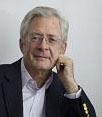

Click to read The Homebound Elderly, Alcoholism, and Psychoanalysis
Aging
It can be a positive experience - July, '99
Aging can be
a positive experience. In their new book Successful Aging
Rowe and Kahn (1998) explode some of the myths of aging. Following are
some important points made in Successful Aging.
1) The extent of loss of mental function in old age is not as great people
think. For instance, of all the elderly people 65 to 100 years of age
or more, only 10 percent are Alzheimer's patients. The predictors of strong
mental function in old age are regular physical activity, strong social
support systems, and a belief in the ability to handle what life has to
offer. Older people can, with training, improve cognitive functioning.
2) Older Americans are generally healthy, not frail and sick.
3) It is never too late to substitute healthy habits for unhealthy practices.
For instance, weight loss can significantly reduce the probability of
heart disease.
4) The role of genetics in aging has been overstated. Although genes have
a role in disease promotion, "For all but the most strongly determined
diseases, such as Huntington's disease, MacArthur Studies show that the
environment and lifestyle have a powerful impact on the likelihood of
actually developing the disorder. This is wonderful news for individuals
with strong histories of some cancer, heart disease, hypertension, rheumatoid
arthritus, and many other conditions. We now know that diet, excercise,
and even medications may delay, or completely eliminate, the emergence
of the disease" (p. 29). Furthermore, when it comes to mental and physical
functioning, studies of Swedish twins have shown that "...only about 30
percent of physical aging can be blamed on the genes"...and further studies
of twins over the age of 80 show "...that only about half of the changes
in mental function with aging are genetic" (p.30).
5) It is not true that the elderly are not productive. Productivity is
often only measured by paid work, and doesn't take into account the many
unpaid jobs that the elderly are involved in that are important to society
such as volunteer work and assistance to families. Furthermore, employers
often will not hire the elderly, nor are employers inclined to initiate
changes in work schedules, hours, etc. so that an older person can maintain
his or her employment.
6) Although sexual activity does tend to decrease with age, this does
not mean that older people do not have an active sex life.
Rowe and Kahn show, through various research studies, that people
who are more connected with others and have social-emotional support live
longer, healthier lives. "Lonliness breeds both illness and early
death. And as a rule, people whose connections with others are relatively
strong - through family (including marriage), friendships, and organizational
memberships - live longer" (p. 156).
Relevance to Psychotherapy - Psychotherapy can help build social connections by reducing depression and tendencies toward isolation.